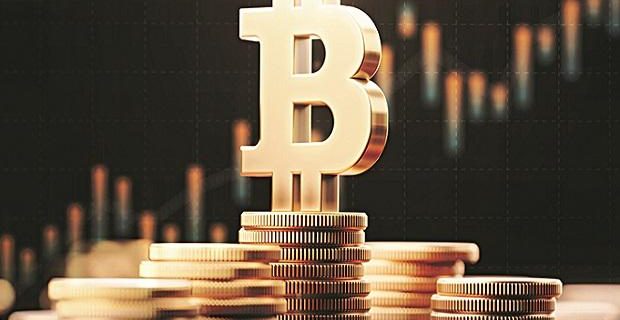Bitcoin goes a bit crazy
Fiat currencies are never this exciting. Bitcoin set its most recent high, of just under $65,000, on April 14. After that it had steadily given ground, and that became a headlong crash in the early hours of Wednesday morning. By 9 am New York time, Bitcoin hit $30,016 — a fall of almost 54 per cent in five weeks. Over the next four hours, it rallied almost 36 per cent. At the time of writing, the price is $39,000. It was quite a ride.
Bitcoin is still blessed, or plagued, with believers rather than investors. There are lots of great arguments for bitcoin, and even more for the blockchain technology on which it is based. While it inspires cultish devotion, it is difficult to analyse as an investable asset.
That's a shame, because this was one day when the crypto world appeared to be the tail that wagged the stock market dog. The S&P 500 sold off sharply at the open, as traders looked at the bloodbath in cryptocurrencies overnight, and then spent most of the day regaining ground as bitcoin staged its own spectacular rebound. It did this even after the somewhat hawkish minutes from the last Federal Open Market Committee meeting gave another reason to sell stocks.
Naturally, this has lots to do with emotion, and in particular with Elon Musk. But even if we take Musk's hype and the excitement he generated into account, nothing happened in the early hours of Wednesday to justify such a huge selloff and rally. And while waves of emotion happen in markets all the time, they are seldom this powerful or as swift. So, how to explain what has happened? Could it have been predicted? And can we predict anything for the future?
Curse of the IPO
There was one surefire clue that something like this was going to happen. Throughout history, initial public offerings have taken place at peaks of confidence. When the owners of a big private company think market conditions are as good as they are going to get, they will go public. And as they know what they are doing, the rest of us should take the hint.
Coinbase Global, the biggest intermediary in the cryptocurrency space, listed last month at almost the exact top for bitcoin. I'm not saying that backers of Coinbase had any inside information, just that they understood conditions were as good as they were going to get.
The Elon Musk.show was more entertaining, and his arguments against bitcoin on environmental grounds are valid — although he should have been perfectly aware of these problems before he started plugging cryptocurrencies. But we shouldn't have taken our eyes off the Coinbase show. The Curse of the IPO will not be denied.
Bracing for regulation
If the Coinbase IPO was a good “tell” that bitcoin was ready for one of its periodic steep falls, it didn't give a good cue for Wednesday's flash crash. Regulators did. Bitcoin generates much of its excitement precisely because it is an alternative to fiat currencies. Like gold, it might be able to hold its value, impervious to the actions of governments.
The problem is that governmental fiat can destroy currencies as well as create them. Governments hold a monopoly on issuing currency, and would understandably be loath to lose it. This is one of the most serious “bear” points against bitcoin, and it got a lot of new support in the hours before the flash crash. From China came the news that payment and credit organisations were to be blocked from accepting bitcoin. In the US, the new comptroller of the currency at the Treasury Department — succeeding a man recruited by the Trump administration from Coinbase, of all places — announced a review of crypto regulation policy.
Michael Hsu, the acting comptroller, said: “At the OCC, the focus has been on encouraging responsible innovation. For instance, we created an Office of Innovation, updated the framework for chartering national banks and trust companies, and interpreted crypto custody services as part of the business of banking. I have asked staff to review these actions.”
This is far from a declaration of war, and he made clear his belief that financial technology companies had a future. But any sign that the lenient regime currently in place might be changed was unwelcome for bitcoin investors.
It isn't a coincidence that the extreme selling started after the Chinese news, however. It shouldn't be surprising that a bad news item in Asian hours prompted a flash crash.
Bitcoin has formed at least three classic bubbles already in its brief history. Each time it has crashed by 80 per cent or more, and then revived after a few years.
Where does this leave us? My best guess is that another surge in cryptocurrency assets has peaked and that it will probably be a while before the high from last month is revisited. Given bitcoin's ability to pick itself up and start again, demonstrated several times now, it is way too soon to say that this is a burst bubble. Whether it really establishes itself as a part, or even an essential part, of the global financial system will depend on how many people use it, and how tolerant central bankers are of that. While bitcoin continues to develop, it will be worth as much as someone is prepared to pay for it. The digital currency's fortunes are likely to remain tied to risk appetite in society at large; whatever direction bitcoin goes in, we can expect other risk assets to go the same way.






